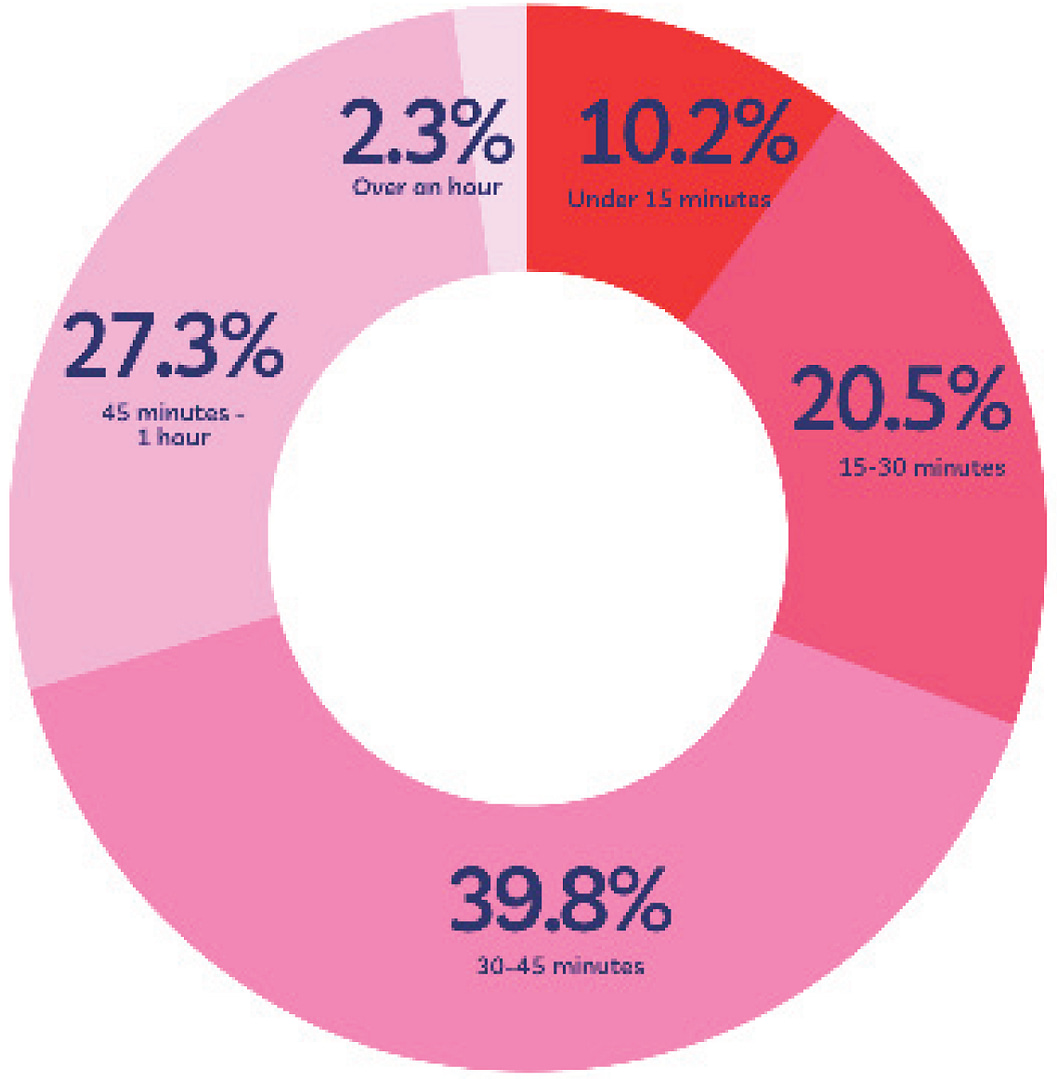On July 31, Nancy Pelosi adjourned the House of Representatives for its August recess, and two weeks later, Mitch McConnell did the same in the Senate. Just a typical August vacation because everything is fine.
The stock market is hitting record highs. COVID-19 cases are at the lowest number nationwide since mid-June. Schools are reopening. Their job is done—at least, according to them.
While they were gone, a mind-boggling 29 million Americans reported that they did not have enough to eat, according to Bloomberg. Nearly 15 million Americans said that they are behind on rent, per the Washington Post. According to the Aspen Institute, of the 110 million Americans who currently live in rental housing, 30-40 million of them have become at risk of eviction by the end of September.
Domestic savings are being burned through as intense downward pressure continues to build. During the financial crisis from the third quarter of 2008 to the second quarter of 2010, domestic saving was a net negative for the first time on record, averaging -1.8% of national income, per Bloomberg. A much sharper and more catastrophic drop into negative territory is now likely, according to Bloomberg, possibly plunging into the range of -5% to -10%.
The number of unemployment claims continued to pile up, smashing through the 37 million claimants during the global financial crisis to total over 55 million since March, per Forbes. According to the U.S. Department of Labor, a stunning 8.13 million Californians have filed for unemployment during that time period, and the average weekly number of claimants continues to increase.
The economic crisis resulting from COVID-19 is affecting much more people in our own Loyola community than one may realize at first. From the indefinite closure of Z’s and its massive loss of revenue to the current lack of on-campus work for custodians to the loss of the need for substitute teachers, many members of our community have been displaced from their jobs and traditional sources of income and have been afflicted with an unbearable financial burden .
The unemployment benefits from the CARES Act ran out on July 31. Even for the select number of people receiving the benefits before that expiration, nearly half of our states paid an average unemployment benefit less than the federal minimum wage, according to CNBC. In states such as Mississippi, Louisiana and Arizona, benefits were capped at $247 per week—a couple of pennies more than a wage of $6 per hour for a full-time worker, per CNBC. Meanwhile, each member of Congress continues to cash in $3,346 per week on their August recess, according to Fox Business.
We get it, Congress. You’re tired from working and tweeting so hard. You’re craving that nice, sunny day at a Cancún resort or a Martha’s Vineyard beach house. But, none of the people you represent get to take a break from the overtime shifts and sleepless nights worrying about paying next month’s bills. The financial burden of many families and other members of our Loyola community can be alleviated only through Congressional action as the pandemic and its severe economic consequences continue to persist.
It is grossly irresponsible to take a break when your constituents need your help the most. You’re supposed to be fighting for the general welfare and basic human necessities of those people—for some of them, you’re their only hope.
Congress tried to negotiate a second stimulus package and extend unemployment benefits before they left. According to The Hill, Democrats entered negotiations with a package of approximately $3.4 trillion to $3.7 trillion, and Republicans and the White House would not go above $1 trillion.
Donoven McAllister ’21 states, “You have to evaluate the short- and long-term consequences of the amount of spending that goes into a new stimulus deal. I’m in support of limiting the spending because it means that the taxes from government spending that our generation will pay as adults will be significantly less than if they distribute another stimulus package, but the government also has to provide an adequate amount of temporary relief because it is the source of the widespread economic struggles due to the lockdowns. Essentially, Congress needs to strike a proper balance.”
Both parties have an argument against the other—the Democrats’ bill would cost too much for a year in which the budget deficit ballooned to a record $3.3 trillion, per CNBC, and the Republicans’ bill does not meet the Keynesian levels of spending necessary to uplift the economy.
But they could have met in the middle. In fact, according to Bridgewater Associates, the next relief bill needs to be between $1.3 trillion and $1.7 trillion to prevent the economy from collapsing—the perfect number on which to reach a compromise.
But they never did and, even worse, deemed it excusable to take an August recess without one.
Andy Perez ’21 gives his take on Congress’ inaction: “It’s definitely frustrating to me and many of my friends, teammates and teachers at school. We’re going into the sixth month of a shutdown, and there needs to be more financial support from the people in power that initiated it. Ever since the CARES Act was signed into law in late March, you would think that Congress would be able to come to an agreement on a second stimulus deal during the abundance of time that they had on their hands.”
It’s absurd that Congress can leave Washington for more than a month without helping their fellow Americans simply survive the coming months because it won’t affect them personally. And some members have the audacity to claim victory based on an artificially inflated stock market bubble while leaving behind the most vulnerable.
Their ignorance of the disastrous human consequences of their inaction is disgusting. How can they grow so numb to human suffering? How could they become so desensitized to the basic human feelings of empathy and compassion for others?
The public’s feedback mechanism to Congress has failed. Our representatives have been out of touch with the reality of their fellow Americans for far too long, and that standard needs to change. We need to restructure the relationship between people and the government so that their voices, not those of lobbyists and corporate lawyers, are heard.
The Second President John Adams once warned, “There is nothing which I dread so much as a division of the republic into two great parties, each arranged under its leader, and concerting measures in opposition to each other. This, in my humble apprehension, is to be dreaded as the greatest political evil under our Constitution.”
Those words could not hold truer today. The future of America depends on heeding the Founding Fathers’ warnings and breaking up the legislative gridlock. America could start fixing its institutional failures to govern by breaking up the hyperpartisan duopoly that creates this friction in the first place and moving to a long-overdue multiparty democracy.
Andy Perez ’21 continues by assigning fault for the lack of a new stimulus deal: “The lack of bipartisanship is easily the main factor to blame for Congress’ failure to respond to the widespread economic issues that have resulted from the lockdowns. I don’t want to get into who’s better than who, but at this point, those unwilling to compromise and cross party lines are to blame.”
We could achieve that seemingly impossible task of overcoming partisanship through ranked-choice voting, which, through tallying choices until a candidate reaches a majority, eliminates total partisanship and “strategic voting” while capturing more accurate voter preferences. It allows a variety of moderate, third-party and unconventional candidates to have a chance without “splitting or spoiling the vote,” as past candidates such as Ralph Nader, Ross Perot and Jill Stein have been accused of doing.
According to the University of California, Berkeley, it also has increased voter participation by 10 points in general elections, potentially lifting the United States from being the country with one of the lowest voter turnouts out of all of the advanced democracies in the world, per the Pew Research Center.
Campaign finance reform should go hand-in-hand with the aforementioned changes to the actual election process. It’s time to eliminate the corporate lobbyists and billionaires that, uninhibited from donation restrictions due to the Supreme Court’s Citizens United decision, control our representatives and dictate crucial votes on important issues with their money.
Besides the Constitutional amendment and the Supreme Court ruling needed to implement stronger campaign finance laws, Democracy Dollars provides the opportunity to rejuvenate our electoral process with publicly funded campaigns that accurately represent what voters value and want to be achieved. The program would provide every American a publicly funded voucher of $100 that could only be used to donate to candidates of local, state and national elections.
For instance, donations from only 100,000 supporters would amount to $10 million and drown out the voices of the mega-donors that flood Washington with their wealth. Congress members would then act more aligned with the interests of their constituents simply because their success would now hinge on the prosperity of the average American.
These programs can be implemented as easily as they are proposed. Based on the redeeming rate for vouchers in a similar program in Seattle, a nationalized Democracy Dollars program would cost only $1.08 billion. The rest of the expenses from the three programs would come from undetermined operating and distribution costs. All of this can be paid for through a value-added tax, which has historically succeeded in continuing to stimulate economic growth and has been implemented in every capitalist country in the world except the U.S., according to The Wall Street Journal. A meager 1% VAT would generate $29 billion per year in tax revenue, per Investopedia, which could then go towards those programs.
It’s time for the divided and distracted American public to wake up from the Congressional pseudo-war of bickering that results in more Benghazi and impeachment hearings than financial support to help the struggling general public. We must uplift ourselves from the symbolic yet ultimately meaningless lunacy in Washington and demand substantial change.
As the Sixteenth President Abraham Lincoln said, “We the people are the rightful masters of both Congress and the courts, not to overthrow the Constitution but to overthrow the men who pervert the Constitution.” Let us, as an inspired, unified nation, follow Lincoln’s advice and construct what our forefathers envisioned our country to be: a wide-ranging, accessible, cooperative multiparty democracy that truly quenches the public’s needs and desires in its electoral process and representatives.







Comments are closed.